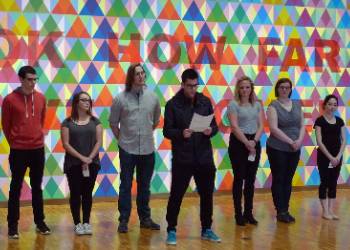101 Professor Katherine Zlabek (Session 1, 100% distance learning)
Course Title: Crafting the Short Story
Fulfills English Major Requirement: ENGA and ENGW writing elective requirement and ENGL major elective requirement.
Course Description: Students will produce fresh, original writing that appeals to an audience’s imagination in this intermediate-level journey into short fiction. In it, we will be discussing the various elements of fiction, including concrete and specific detail, voice, atmosphere, and plot, to name a few. Students will explore the formal elements of writing alongside fiction that exemplifies or challenges these formal elements. Each story will be examined critically for its form as well as its representation of social, cultural beliefs and values, economic or global conditions, and environmental circumstances. In a workshop setting, we will critique one another’s creative writing, and discuss strategies for revising creative writing effectively.
Readings: Stories and craft essays will be posted on D2L.
Assignments: Thoughtful attention to published work, and the work of peers; considerate workshop participation; short stories; outside reading and short presentation; final portfolio.
102 Professor Megan Paonessa (Session 2, 100% distance learning)
Course Title: Crafting the Short Story
Fulfills English Major Requirement: ENGA and ENGW writing elective requirement and ENGL major elective requirement.
Course Description: Following the outline Jeff Vandermeer provides in “Wonderbook,” this course will focus on the craft involved in writing short stories. We will explore the core elements of fiction, like character, point of view, dialogue, description, and style, as well as some of the lesser mysteries of writing and the role of the imagination. Taking cues from celebrated short stories that exemplify or challenge these core elements of short story writing, we will build our critical and analytical skills while also composing short pieces that experiment with these core concepts from a more creative perspective.



